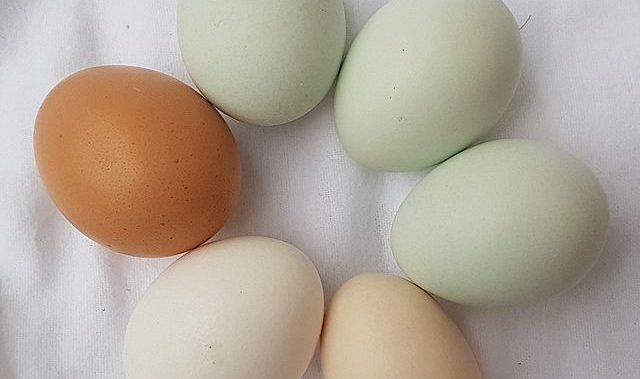Long-term egg price stagnation has brought Jamaica’s farmers low earnings, but this could change after an increment proposal.
The Jamaica Egg Farmers Association (JEFA) now proposes J$440 ($2.80) a dozen for loose eggs, the Jamaica Observer reports September 18, 2024.
A similar proposed rise will also apply to branded eggs, which will cost J$480 ($3.05) a dozen, to earn producers some profit.
According to JEFA’s president Mark Campbell, 90% of egg producers are suffering losses as production costs surge.
Although the island nation’s food prices rose during COVID-19 in 2022, eggs ironically remained the most accessible protein source.
This affordability occasioned huge egg demand by 8.9% in 2023 over that of 2022, leading to sales of 254,947,500 units.
Despite production costs rising, the in-shell product remained cheaper than meat at J$1,200 ($7.63) for a “flat” of 30 pieces. In comparison, mutton required a hefty J$1,500 ($9.54) a pound to purchase in the same period.
2024 has seen egg pricing still level off despite annual inflation hitting 7.4% in January 2024 according to the World Bank.
Other than price, farmers blame uptick production expenditure including labor, conveyance, power and feed costs for low returns. Feed alone, for instance, gobbles up 70% of all egg production expenditure. This means large farms have to ration the remaining 30% to cover other costs including wages. Pointedly, Jamaica’s government raised the minimum wage in June 2024 to J$15,000 ($95.40) per a week of 40 hours.
In case of price increment, farmers could wriggle off the cost yoke through spot sales rather than fixed price contracts.
According to Campbell, producers who tie themselves to supermarkets’ “price guarantees” eventually end up in financial distress.
So, as the increment proposal threatens Jamaica’s egg price stability, farmers could soon enjoy profit like their counterparts in other food sectors. For further information on the Caribbean country’s egg pricing, read on in the next statistics section.
Jamaica Egg Price Statistics
Egg production in Jamaica relies on both pricing and demand factors. According to Jamaica Gleaner, fair pricing prompted Jamaicans to buy 232,345,799 eggs in 2022, which rose by 8.9% in 2023. The wholesale rate in 2023 flattened at J$1,200 ($7.63) per 30 eggs, while 2024’s proposal per loose dozen is J$440 ($2.80). In the per-tonne pricing context, Jamaica’s 2021 producer egg price was $3,789.3, according to FAOSTAT.
How do Jamaica’s egg prices compare globally?
Jamaica’s price of J$350 ($2.23) per dozen (2021) or 2024’s J$440 ($2.80) are both slightly below the global average of $2.92 of March 2024.
How does Jamaica’s egg price index rank globally?
The World Bank International Comparison Program shows that Jamaica had a remarkably strong egg price index in 2017. While the global egg price average for 2017 was 116.79 points, that of Jamaica at position 14 worldwide was 172.92 points. In comparison, South Korea had the highest index at 227.69 points.
Is Jamaica a high egg consumer per capita?
Jamaicans are moderate egg consumers by world standards. In 2021, for example, the average person in the country ate 3.17 kg of eggs per year. This is equal to 1 to 1.5 eggs each week per person, inclusive of locals and tourists. Comparably, the United States had a consumption rate of 15.83 kg per capita. This is even as Jamaica’s neighbors Haiti, Cuba and the Dominican Republican had 0.5kg, 7.89 kg and 14.22 kg per capita respectively.
